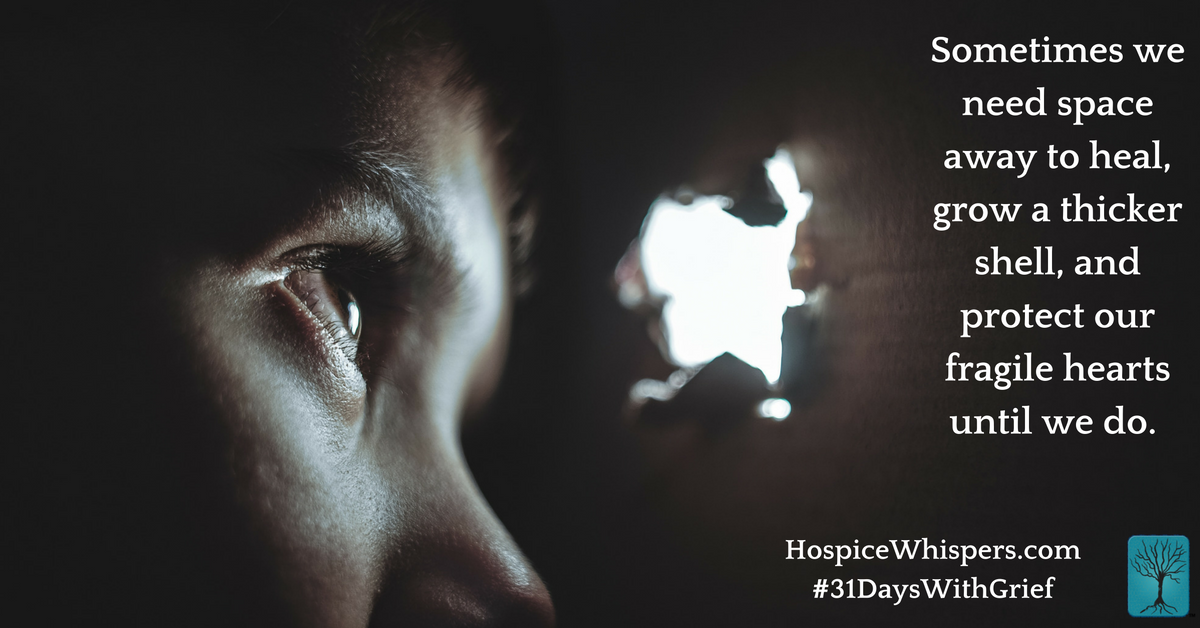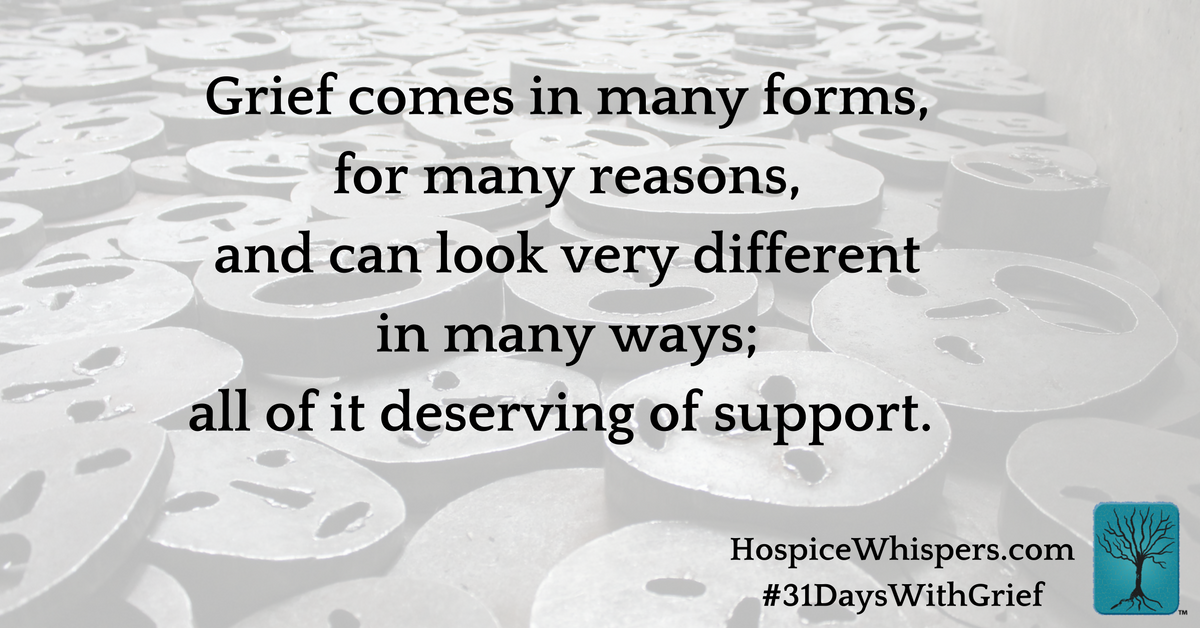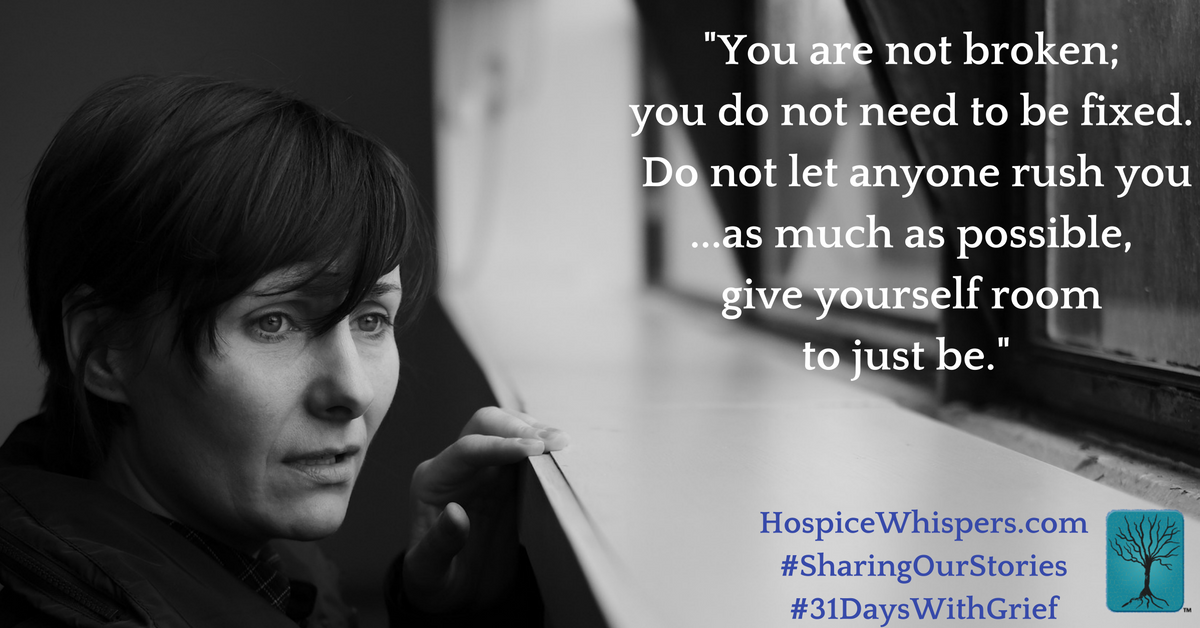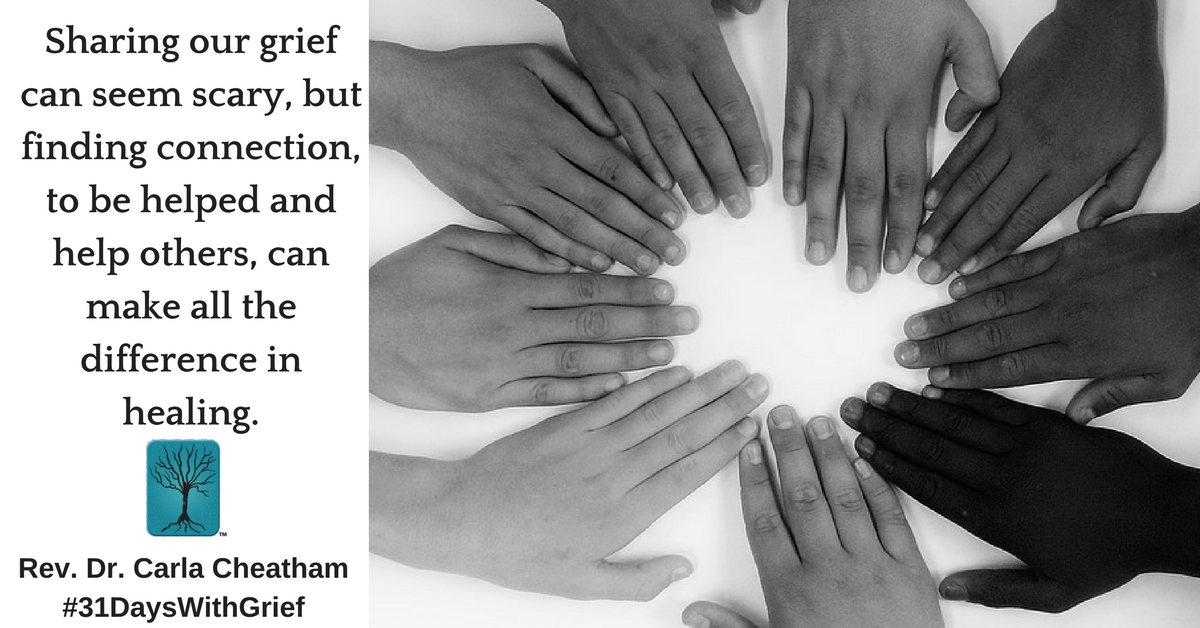31 Days of Walking with Grief: Others’ and Our Own
Day 13—When Questions Have No Answers
This is a month-long series to support persons grieving and those who love them. It includes content from “Sharing Our Stories: A Hospice Whispers Grief Support Workbook” available through Amazon and wherever books are sold.
Grief often involves questions. Loss can challenge our foundational beliefs about the way we think the world should be, leaving us looking for something solid on which to stand.
We want things to make sense. When they don’t, we feel out of control, and that triggers our anxiety. We want the world to seem orderly and predictable, once again, so our brains work overtime to try to find meaning in situations that often make no sense.
German philosopher, Friedrich Nietzsche’s, quote, “He who has a why to live for can bear almost any how”, comes to mind. Our brains look for that “why”, even though oftentimes one is not readily available.
Meaning isn’t something anyone else can spoon-feed us. Meaning is something we must find for ourselves, and what works for one may not necessarily work for another.
I spend a great deal of my time teaching professional care providers and even lay people how to be present with the suffering of others without trying to fix it by giving pat answers or trying to impose their meaning onto the other’s crisis.
Those are the cheap seats, far removed from the main actors where we don’t have to actually be touched by their pain. That simply lets us feel good about ourselves for thinking we’ve helped, so we can then move on, un-phased. The hard place to sit is on the front row, up close to the pain and misery where we can feel it, see it, and touch it, which we really don’t want to do.
When others hear the questions of grief, they often feel they must answer them lest they be seen as unwise, weak, or uncaring. This discomfort can lead them to shy away from grief. Anyone who has experienced grief can attest to the feelings of being a pariah as some persons avoid this discomfort.
So I train others to practice sitting in the midst of those questions while noticing their discomfort and avoiding the urge to run away or provide answers, even when persons plead with them to do so. To say, “I don’t know”, in the face of pain can feel unbearable, but it can be the most compassionate thing we can do.
Sometimes, we simply must sit with the discomfort of the unknown while those suffering find their own answers. The meaning we find can mean far more to us than that which is imposed upon us by others.
As desperately as we may want to demand that another tell us how to make sense of our loss, when we are ready, the answers will come. Anything said to us before then will find no solid place on which to land; the words will bring us no solace if we are not ready to accept them.
So we breathe and we sit and we wait, and often must accept that there simply are no answers. Meaning? Yes, we can find such gifts in time, but answers about why those whom we love or those things dear to us go away, often are never to come.
Perhaps the most challenging thing is waiting until we find peace with this absence.
Yours in waiting,
Carla
 Rev. Carla Cheatham, MA, MDiv, PhD, TRT has served hospices as a chaplain and bereavement coordinator. She’s the Section Leader for the Spiritual Caregivers Section of the National Hospice and Palliative Care Organization and an adjunct professor at the Seminary of the Southwest. Through her Carla Cheatham Consulting Group, Carla provides training and consulting for professional caregivers nationwide. She is the author of Hospice Whispers: Stories of Life and its companion volume, Sharing Our Stories: A Hospice Whispers Grief Support Workbook. Her next book, On Showing Up with Suffering: Others’ and Our Own, is set to publish in 2017.
Rev. Carla Cheatham, MA, MDiv, PhD, TRT has served hospices as a chaplain and bereavement coordinator. She’s the Section Leader for the Spiritual Caregivers Section of the National Hospice and Palliative Care Organization and an adjunct professor at the Seminary of the Southwest. Through her Carla Cheatham Consulting Group, Carla provides training and consulting for professional caregivers nationwide. She is the author of Hospice Whispers: Stories of Life and its companion volume, Sharing Our Stories: A Hospice Whispers Grief Support Workbook. Her next book, On Showing Up with Suffering: Others’ and Our Own, is set to publish in 2017.

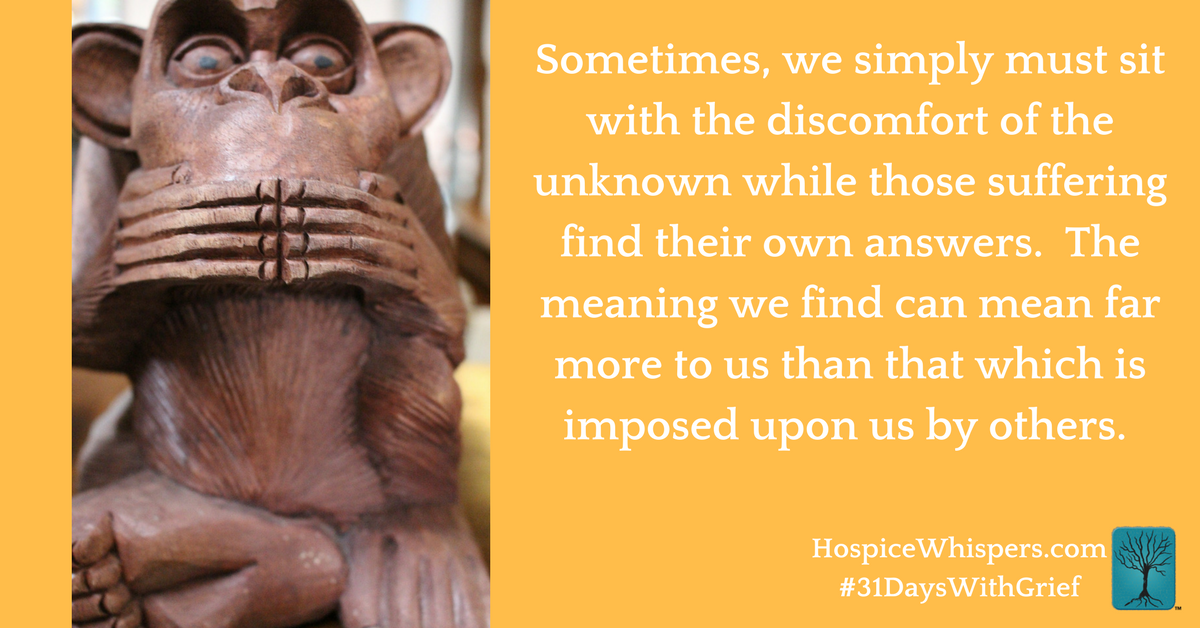

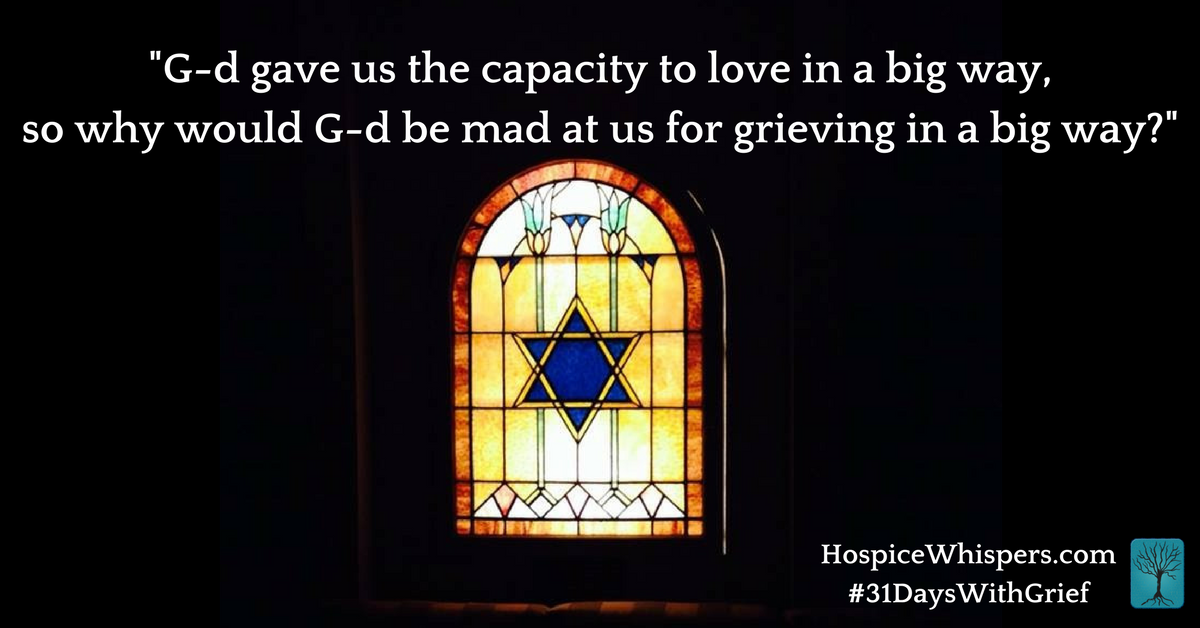
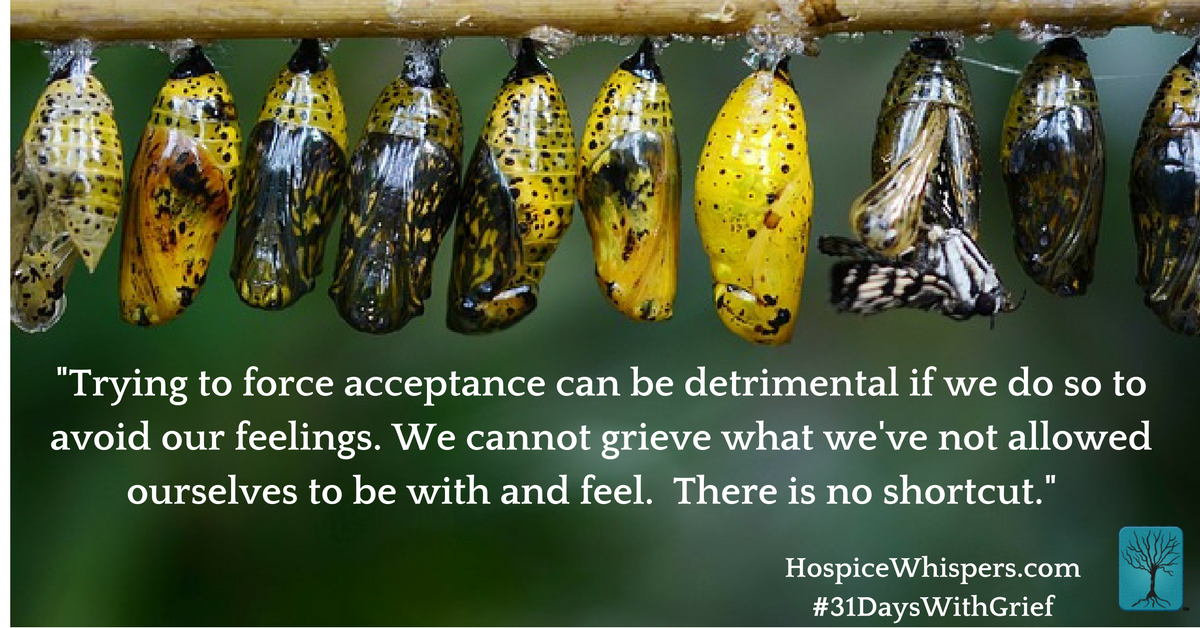
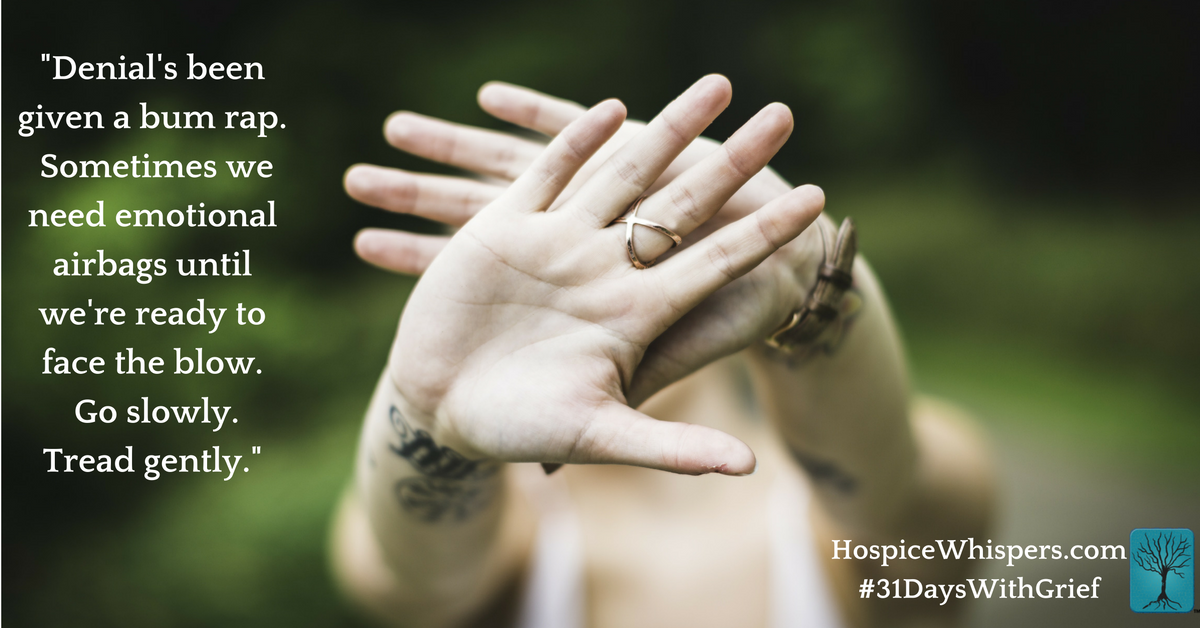
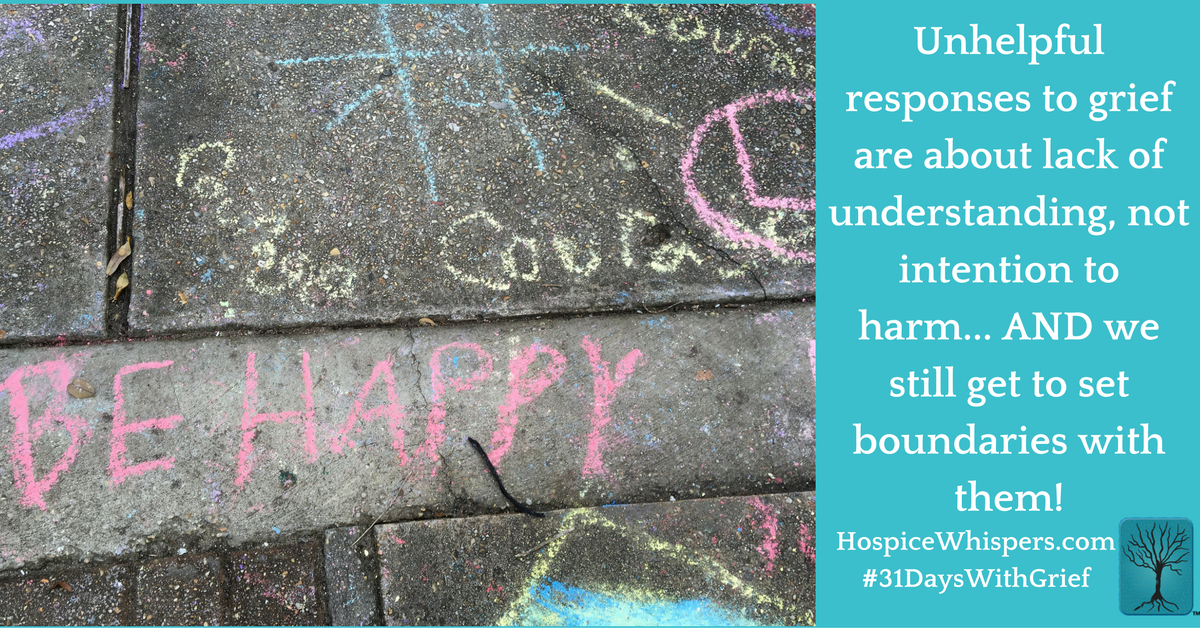
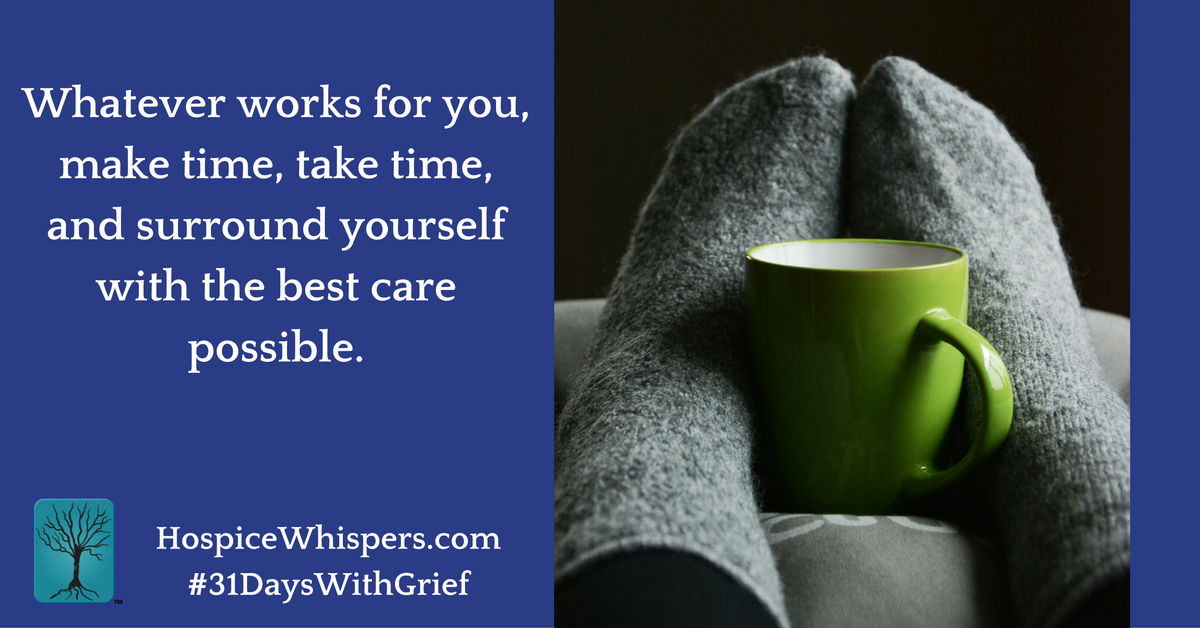
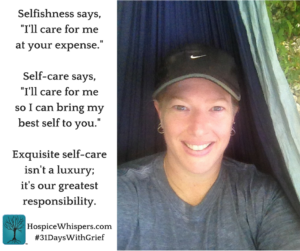 This is me in my hammock next to my favorite waterfall on my favorite hiking trail. Practicing what I teach isn’t always easy. But I’m grateful that saying these things out loud to others helps hold me accountable for actually doing them, myself! If I don’t make space for down time and silence, I quickly become a crispy critter not fit for human consumption.
This is me in my hammock next to my favorite waterfall on my favorite hiking trail. Practicing what I teach isn’t always easy. But I’m grateful that saying these things out loud to others helps hold me accountable for actually doing them, myself! If I don’t make space for down time and silence, I quickly become a crispy critter not fit for human consumption. 